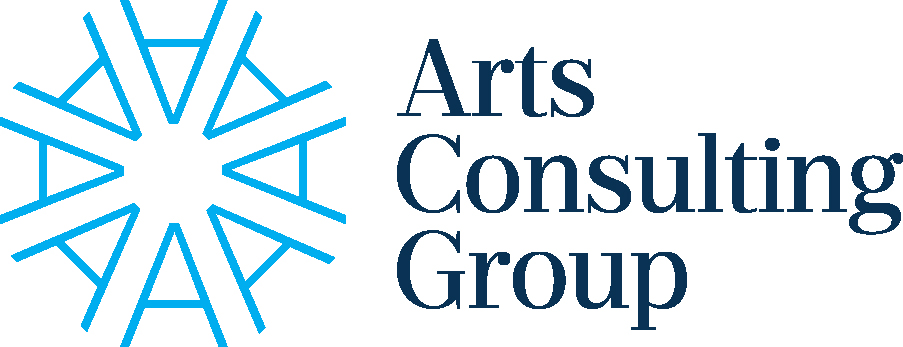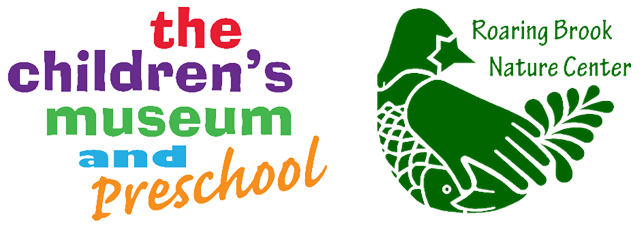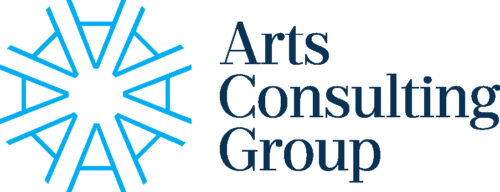Organization
Founded in 1927, The Children’s Museum Group (The Children’s Museum) is located in West Hartford, Connecticut and includes The Children’s Museum, The Children’s Museum Preschool, and Roaring Brook Nature Center. The Children’s Museum serves as a pioneering nonprofit institution dedicated to inspiring lifelong, experiential learning and innovation for children, adults, and communities that support them. Listed as the nation's fifth oldest children’s museum, its mission is to foster creative thinking and ongoing education through hands-on science and nature experiences. The Children’s Museum offers interactive demonstrations, workshops, exhibits, the wildlife sanctuary, and special events, engaging participants in stimulating, multi-sensory learning.
Roaring Brook Nature Center, located in nearby Canton, was integrated into the museum since 1973 and now enriches the visitor experience through animal and environmental exhibits, nature programs, and outdoor activities. Situated on 165 acres adjacent to a state wildlife refuge, Roaring Brook Nature Center serves as an outdoor classroom, featuring trails, gardens, and wildlife habitats. The Children’s Museum Preschool, incorporated into the West Hartford campus, uniquely combines science experiences into early childhood education. Educational initiatives extend to schools statewide, providing innovative inquiry-based science learning techniques and teacher training programs.
The Children’s Museum is at a pivotal moment of its organizational journey as it prepares for relocation to a new facility. After 65 years in West Hartford Center, The Children’s Museum moved to its temporary location at Emanuel Synagogue, where it remains a vital community asset, fostering curiosity, confidence, and innovation in participants. This commitment to education extends well beyond the museum walls, exemplified by its mobile programs that bring interactive science and nature programming, including live animals, to schools and communities across Connecticut.
The Children’s Museum is steered by the Executive Director and governed by a 16-member board of trustees led by Chair Ayesha Clarke. There are 27 full- and 18 part-time employees, as well as seasonal staff. For 2024, the organization anticipates total revenue of $2.6 million, with $1.1 million from contributions and grants and $1.5 million from program services.
Community
Hartford is part of New England’s Knowledge Corridor, an interstate partnership created to increase cooperative marketing and public policy efforts that transcend political and state boundaries, in a region of more than 1.7 million people and 160,000 college and university students. The Knowledge Corridor includes the Hartford, Springfield, and New Haven metropolitan areas and seven counties, all linked by a shared economy, history, culture, and features, including Bradley International Airport, rail lines, Interstate 91, and the Connecticut River.
Hartford and its surrounding communities feature hundreds of parks and open spaces that offer residents, businesses, and tourists a variety of recreational activities. These include fields for organized sports, scenic pathways for bicyclists and pedestrians, swimming pools, boat launches, equestrian trails, golf courses, playscapes for children, gardening, and other healthy opportunities for social interaction. Hartford is home to such notable institutions as the Mark Twain House, Harriet Beecher Stowe Center, Hartford Stage, The Bushnell Center for the Performing Arts, Elizabeth Park, and Wadsworth Atheneum Museum of Art.
Hartford is characterized by a culturally diverse environment, boasting a dynamic arts scene and historical significance. The city hosts an array of amenities, including reputable educational institutions and cultural landmarks, making it an appealing destination for professionals seeking a balanced and enriching urban experience. West Hartford, current home to The Children’s Museum, stands out for its practical appeal and community amenities. With a mix of residential neighborhoods and a lively town center, the city provides a comfortable living environment.
Sources: edited from census.gov; nationalgeographic.com; portal.ct.gov; hartford.gov; knowledgecorridor.org
Position Summary
The Executive Director will be an innovative and visionary leader who steers the future of The Children’s Museum during its relocation to a new venue. Reporting directly to the board of directors, the Executive Director will be instrumental in shaping The Children’s Museum’s direction by bringing a unique blend of business acumen and a proven track record in relationship-building, advocacy, fiscal leadership, fundraising, and change management. The role will involve engaging and empowering both The Children Museum’s dedicated staff and board members to embrace a fresh vision for The Children’s Museum in its new home. The Executive Director will create a positive and inclusive working environment, aimed at supporting, attracting, and retaining a high-caliber staff, while expanding The Children Museum’s reach and impact on the Greater Hartford region.
Roles and Responsibilities
Strategic Leadership, Adaptability, and Innovation
- Guide the organization through the transition to a new location and beyond, establishing and communicating a refreshed identity through effective branding and marketing strategies.
- Drive innovation to adapt to the evolving landscape and capitalize on opportunities in the Greater Hartford Region.
- Actively engage a growing and diverse board of directors to determine and pursue long-term strategic priorities.
- Navigate potential changes in the organization’s strategic framework, business model, and operations while maintaining open communication with all relevant stakeholders and nurturing relationships with current constituents.
- Embrace other strategic leadership, adaptability, and innovation roles, as needed.
External Relations and Advocacy
- Serve as The Children Museum’s principal spokesperson, effectively communicating the organization’s unique value proposition to secure support from local, regional, and national stakeholders.
- Lead fundraising strategy in collaboration with development staff and board in support of relocation and to ensure organizational sustainability, strengthening existing and fostering new donor relationships.
- Identify and pursue diverse funding streams, providing guidance and support to maintain and build both earned and contributed revenue.
- Actively participate in professional networks, civic and corporate engagement, and regional arts and education agencies to establish and strengthen relationships.
- Embrace other external relations and advocacy roles, as needed.
Team Development and Engagement
- Inspire staff and align vision and programming with clearly articulated goals and expectations.
- Address internal obstacles and challenges to foster a unified organization and purpose across programs and locations.
- Develop an inclusive and supportive work environment to welcome and retain a highly skilled and motivated staff across the organization.
- Ensure that The Children’s Museum’s programming and engagement efforts are culturally responsive and inclusive, ready to adapt to different challenges and dynamics.
- Embrace other team development and engagement roles, as needed.
Traits and Characteristics
The Executive Director will be an inspiring, visible, community-driven leader with a passion and commitment to The Children’s Museum’s history, mission, and vision for its future. Versatile and people-oriented, they will value effective communication with high visibility and engagement in the community, while serving as the ambassador and advancing the work of the organization. The Executive Director will lead by example and apply practical thinking and judgment to all aspects of the organization’s operations and initiatives. Communicating priorities to staff, board members, and stakeholders to expand the organization’s visibility and reach, this energetic and engaging leader will be receptive to new ideas, methods, and opportunities and make challenging decisions with confidence and compassion.
Other key competencies include:
- Leadership and Influencing Others – The capacity to inspire and influence others to believe in a vision, leveraging their networks to advance organizational priorities and gain the trust and confidence of board, staff, local partners, and key stakeholders.
- Diplomacy and Interpersonal Skills – The clarity to demonstrate emotional intelligence and sensitivity when handling difficult issues, while communicating, building rapport, and relating well to all kinds of people.
- Time and Priority Management – The aptitude to ascertain competing priorities, overcome obstacles, and maximize the use of time and resources to attain the desired outcomes.
- Personal Accountability – The sensitivity to the impact of personal actions and decisions on others and accountability for initiatives, decisions, and actions.
- Negotiation Skills – The dexterity to address challenging or sensitive issues while actively listening to diverse perspectives and facilitating consensus among a variety of stakeholders.
Qualifications
Qualified candidates will have a bachelor’s degree or equivalent, plus a minimum of five years of progressive responsibility in a senior leadership role within a nonprofit organization. A proven track record of fundraising, civic and community engagement, marketing and branding, board engagement, and fiscal management is required. Experience and insight into museums, early childhood education, nature centers, and/or youth development is desirable, but not required. Outstanding presentation and communication skills, as well as the ability to be a persuasive spokesperson, relationship builder, promoter, and fundraiser is preferred. A strong commitment to fostering an inclusive working environment and a successful track record of recruiting and retaining a diverse team are essential. This role will be an active member of the Greater Hartford arts, culture, and education communities, and it is therefore expected that the Executive Director will work in a variety of settings, which may also include events and engagements on holidays, evenings, and weekends. The Executive Director will be expected to reside within a commutable distance of the Greater Hartford community.
Compensation and Benefits
The Children’s Museum offers competitive compensation with an anticipated annual salary range between $120,000 to $140,000. Employee benefits include paid vacation, sick leave, personal days, and holidays; health and life insurance; and participation in My CT Savings retirement savings options, among other benefits equitably afforded to all employees.
Applications and Inquiries
To submit a cover letter and resume with a summary of demonstrable accomplishments (electronic submissions preferred), please click here or visit artsconsulting.com/opensearches. For questions or general inquiries about this job opportunity, including the anticipated salary range, please contact:
Dat Ngo (he/him/his)
1030 15th Street NW, Suite 283
Washington, DC 20005-1500
Tel (888) 234.4236 Ext. 235
Email ChildrensMuseumGroup@ArtsConsulting.com
The Children’s Museum Group actively seeks diverse perspectives and talents to enrich our team. All qualified applicants will receive consideration for employment without regard to race, color, religion, gender, sexual orientation, gender identity, national origin, age, or disability.


